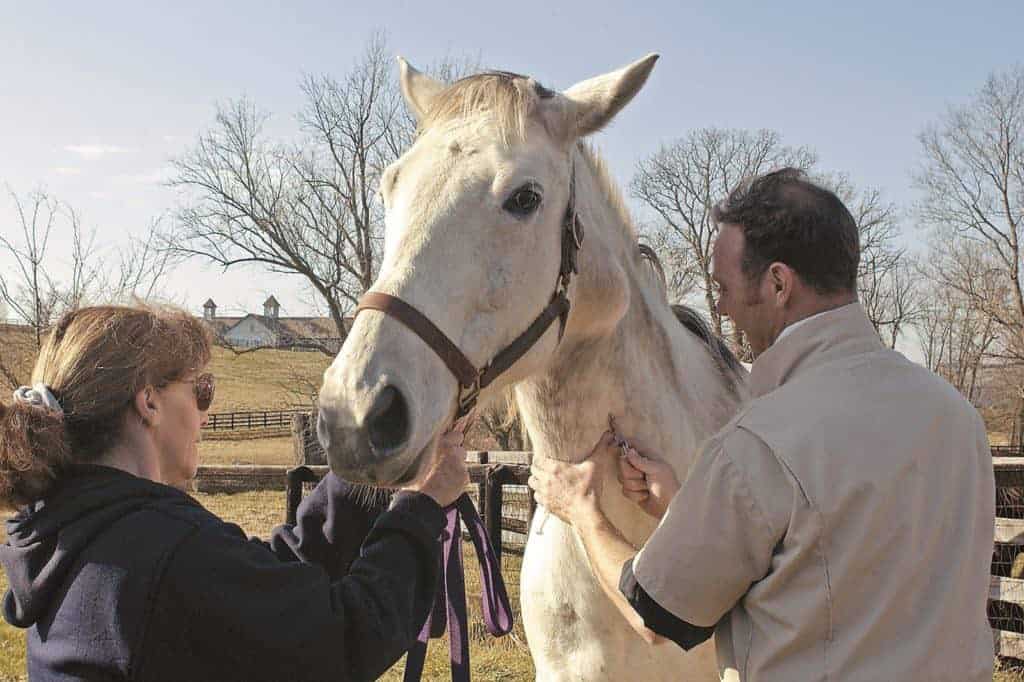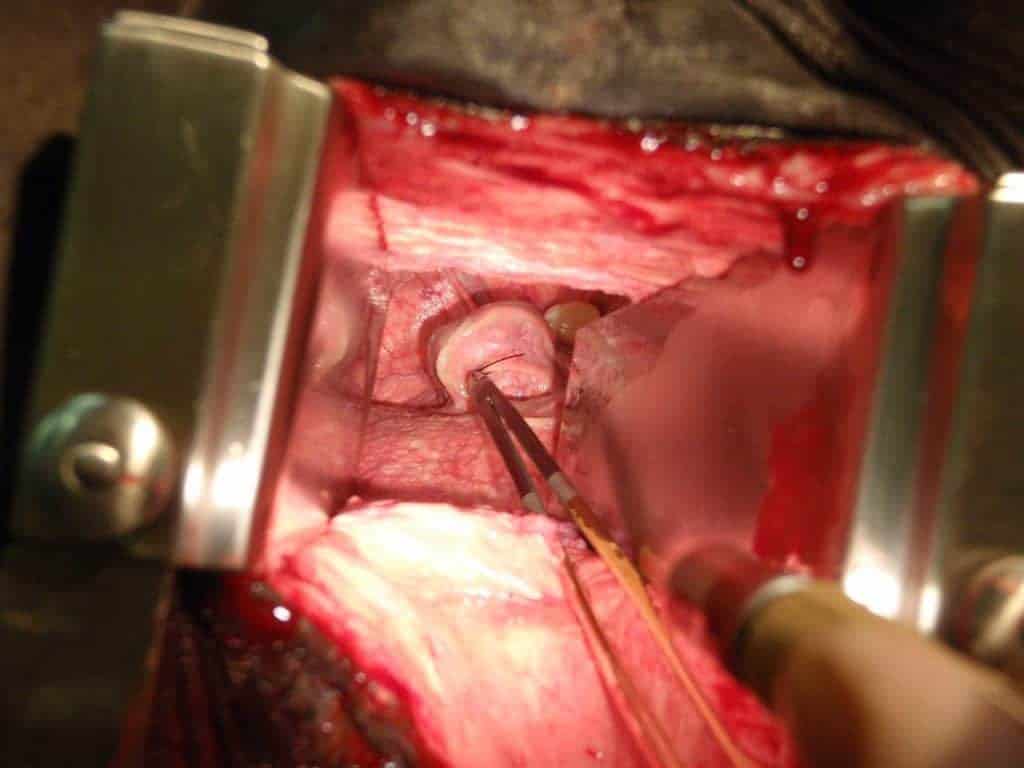
AAEP Veterinarians Discuss Equine Eye Topics
Attendees discussed fungal keratitis, ocular medications, and equine recurrent uveitis.

Attendees discussed fungal keratitis, ocular medications, and equine recurrent uveitis.

Vets caring for Friesians should interpret a few tests differently than they would in the average horse.

Researchers are striving to better understand the balance between tolerable and excessive bone damage.

When in their early stages, melanomas are small and can seem insignificant, but many are extremely invasive.

Dr. Lisa Fortier shares her picks for the top equine surgery- and lameness-related studies of 2013.

In the face of new racing medication rules, vets are revisiting treatment approaches for injured horses.

Hemospermia–blood in the semen–is detrimental to fertility, stallion welfare, and industry economics.

Researchers found that monovalent WNV vaccines produced a titer levels than combination vaccines.

Achieving a sustainable racing career following tendon or ligament injuries remains a challenge, one vet says.

Researchers took a page from human medicine to treat cervical incompetence in mares.

Veterinarians are reporting increasing numbers of horses being diagnosed with pigeon fever.

Dr. Pat McCue describes the reproduction studies from the past year he deemed most important and useful.
Attendees discussed diagnostic and treatment options, among other topics.

Study results suggest that in some cases veterinarians can begin vaccinating foals sooner than once thought.
Veterinarians agree that more research is needed on Lyme disease in horses.

One EHV-1 vaccine could have some protective properties against the neurologic form of the virus.
Stay on top of the most recent Horse Health news with
"*" indicates required fields